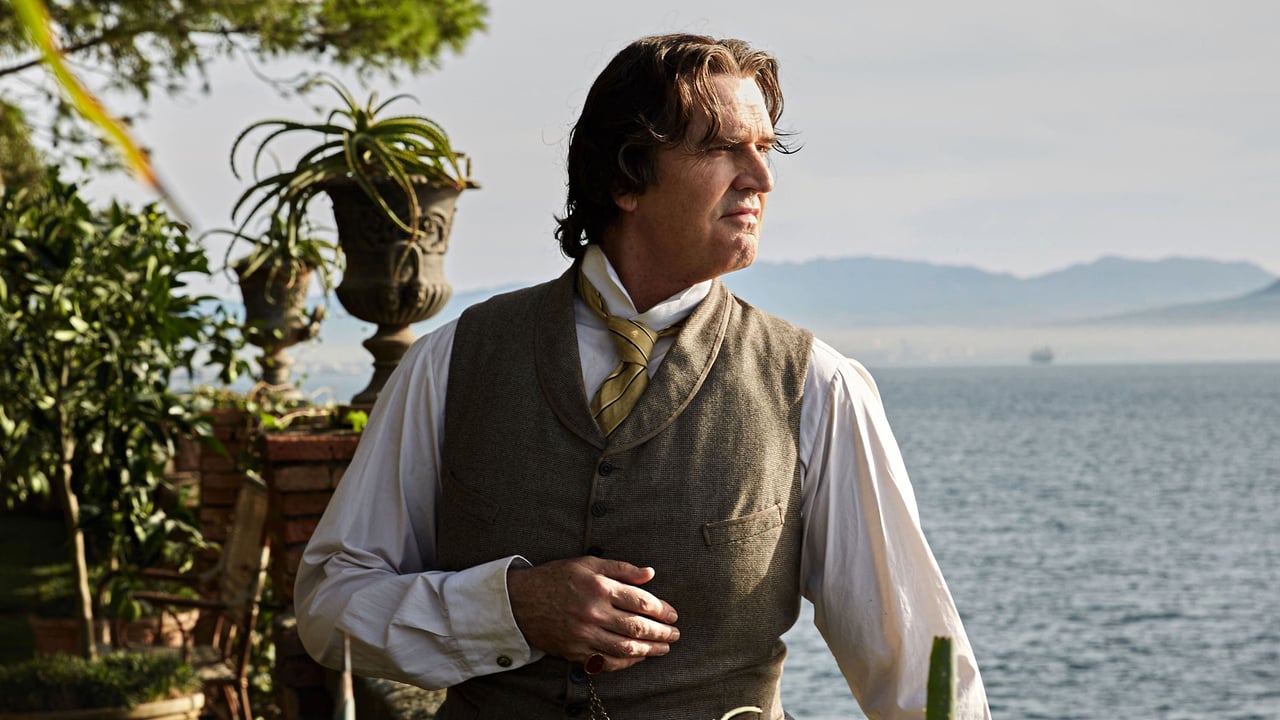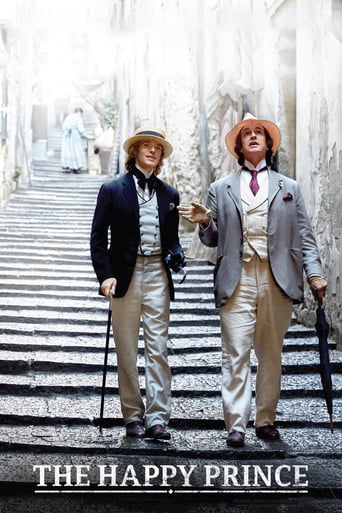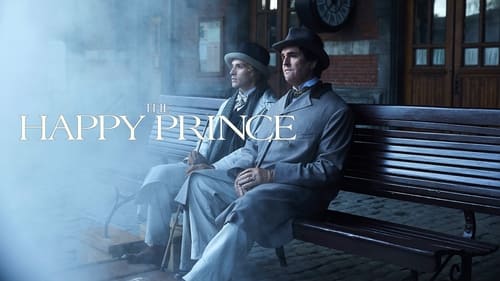



You won't be disappointed!
Good , But It Is Overrated By Some
One of the best movies of the year! Incredible from the beginning to the end.
View MoreOne of those movie experiences that is so good it makes you realize you've been grading everything else on a curve.
View MoreI was unsure whether a film about his last years was a story worthy of telling. I was wrong. The genius known as Oscar Wilde had more than his fair share of flaws. This is laid bare in his final story.
View MoreThis Oscar Wilde movie - written, directed, and starring Rupert Everett - turned out to be a vacuous vanity production, with no chronology, and no idea, no attempt even, to examine or describe Oscar. This was a portrait of a fairly good actor who should never be allowed to direct, and one who has no narrative sense of the writer's art. Fortunately there were good actors in the background, such as a scene stealing Tom Wilkinson. Colin Firth, Anna Chancellor and Emily Watson provide lessons in how to act to Rupert, which sounds unkind, but this is because the film dwells on Everett narcissistically. It's failure is entirely down to him. It is not a film about the genius it set out to explore. It's all about Rupert dressing up.
View MoreAlthough it focuses on the less well-known final years of Wilde's life, the script follows a traditional arc and has little new to say about the writer or his relationships.Ross and Douglas are presented as daggers drawn in the service of a script which identifies them as Wilde's 'good' and 'bad' angels. The reality was much messier, and records show that during Wilde's lifetime they remained friends, at least on the surface. It was only a good while after his death that they fell out, with appalling consequences for both of them. In this context, the film's depiction of the altercation between the two men at Wilde's funeral is particularly ridiculous. If the eye witness account of the poet Paul Fort is to be believed, there was a hysterical scene when Douglas tried to throw himself into the grave, but it didn't lead to fisticuffs with Ross.This aside, there is much to enjoy in the film, not least Rupert Everett's compelling central performance, its impressionistic structure and the stunning cinematography and costumes. There are also interesting and nuanced supporting performances from Emily Watson and Colin Morgan, even within the strait jacket of a script that has little to add to received wisdom about their characters.
View MoreRupert Everett fulfils a long-held ambition here to make a film about the last days of Oscar Wilde, and in the title role he is simply terrific - he is never off the screen. To write it and direct it as well, however, is to take on too much; indeed the need for an objective view is often apparent when it comes to narrative and structure. The film starts slowly (with a dreadful cardboard cut-out of London by night that could have taken from Olivier's wartime Henry V) and it's some time before the flashbacks (and flashbacks within flashbacks) begin. Supporting performances, especially from Colin Morgan as Bosie and Emily Watson (under-used) as Constance, are excellent and the photography,(particularly in the Italian sequences) beautiful, though I found the half-shadows of the faces in the candlelight rather tiresome. I must add that, for someone who is penniless and constantly on the run, Wilde does possess a large wardrobe. There is more humour than one might expect (I won't spoil your enjoyment by quoting any of the jokes but I found the sequence where the priest (Tom Wilkinson) comes to give Wilde the extreme unction especially hilarious). Great attention is paid to the soundtrack, but why the use of Tchaikovsky's Pathetique Symphony at the end? All in all a fine effort, but I did leave the cinema strangely unmoved.
View More